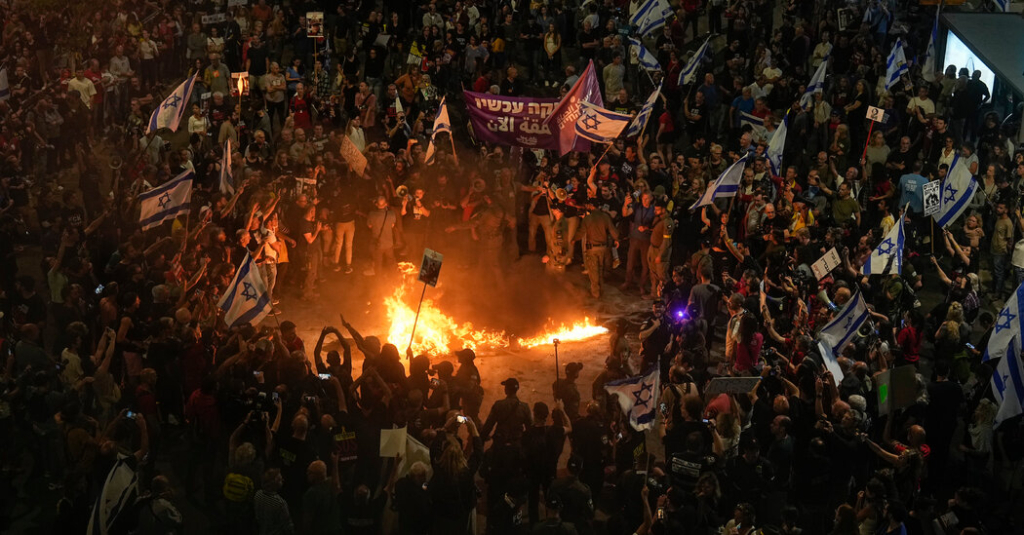
The International Court of Justice will deliver a decision on Tuesday on whether suppliers of military aid to Israel share some responsibility for how the weapons are used, as the court in The Hague again becomes a focal point of global efforts to rein in the war in Gaza.
The judges are set to issue an interim decision in a case brought by Nicaragua against Germany. In it, Nicaragua asked the I.C.J., the United Nations’ highest court, to issue an emergency order for Germany to stop supplying arms to Israel and to ensure that those already supplied were not unlawfully used.
The court’s response could answer larger questions involving Israel’s allies in Europe and the United States, including whether suppliers of arms can be found complicit, and even held liable, if the aid is used to enable grievous war crimes.
Appearing before the judges in early April, Nicaragua, a longstanding supporter of the Palestinian cause, told the court that Germany was not only failing in its obligations to help avoid genocide against Palestinians in Gaza, but was also facilitating crimes with its military assistance. Germany is a staunch ally of Israel and second only to the United States in providing it with arms.
Both Germany and Nicaragua are parties to the 1948 Genocide Convention, which binds them to act to prevent genocide, defined as the intent to destroy a group not only by killing or causing serious bodily or mental harm, but also by inflicting “conditions of life calculated to bring about its physical destruction in whole or in part.”
Israel has repeatedly denied accusations that it is committing genocide in Gaza, arguing that its military has worked to preserve civilian life and that Hamas has used civilians as human shields.
In January, the I.C.J. issued separate interim orders requested by South Africa, specifying that Israel must prevent its forces in Gaza from taking actions that are banned under the Genocide Convention, must prevent and punish public statements that constitute incitements to genocide, and must allow more access to humanitarian aid. The court is expected to take at least two years to rule on the question of whether Israel has committed genocide but found a “plausible” risk of genocide.
Germany has strongly rejected arguments that it has been violating international law with its military exports to Israel, saying the shipments are always licensed under German and European rules.
The scope of Nicaragua’s claims against Germany are broader than those in the South African case against Israel. Nicaragua argues that German arms supplies not only risk facilitating genocide, but also contribute to violations of the Geneva Conventions, which include the obligation to protect civilians during military hostilities.
Unlike Germany, which has given the court full jurisdiction, the United States has shielded itself and has to consent to a case. It has protected itself even further from the Genocide Convention, signing the convention but exempting itself from any obligations, such as intervening to stop a genocide or paying reparations if it were found to be complicit.
Critics of the Nicaraguan government say that its pursuit of Germany for breaking international law is hypocritical: a recent U.N. report accused Nicaragua of “systematic human rights violations” and increasing repression of government opponents at home.













